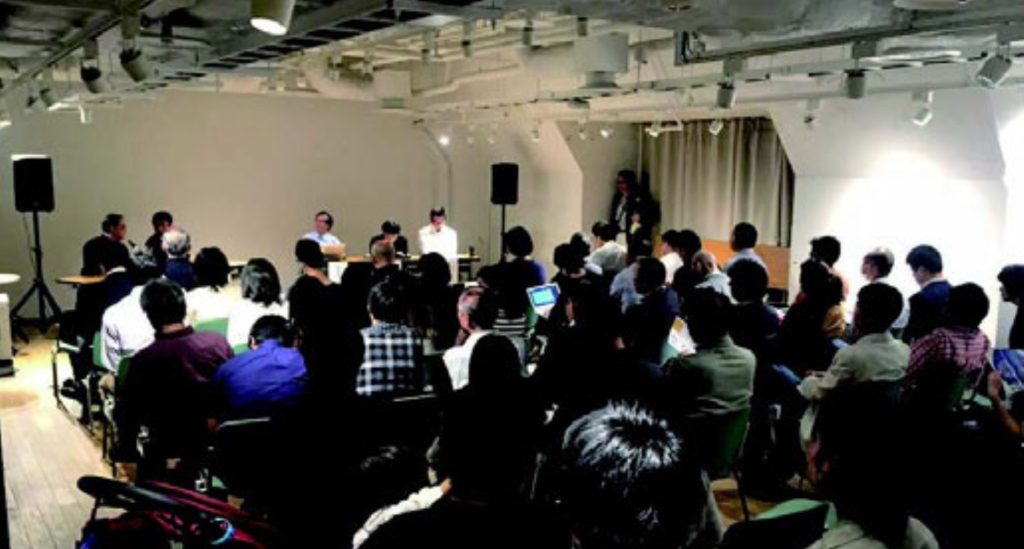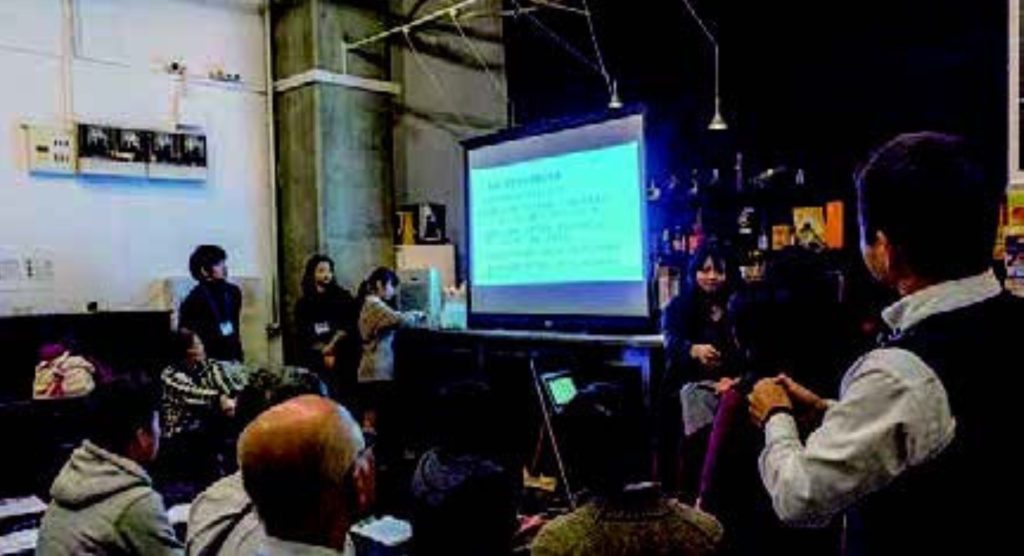Activity area status and issues
Aiming to reorganize the relationship between “Sea”, “Port” and “City” through social, civil and academic collaboration and citizen’s participation, in the Yokohama seaside and seaside-city area, a town embraced by the sea (embracing the sea) as “Yoko” and “hama” mean “side” and “beach”, respectively, we want to consider and propose the 21st Century “Yokohama Marine Environment Future City”.
Establishment history
For the coastal areas (ports and harbors) that may be less profitable in the future, examination of future concepts such as the so-called “inner harbor concept” (Marine-City Yokohama concept 2059, Tokyo Metropolitan Coastal Area Reorganization Development Master Plan, etc.), which has been studied and proposed since around 2008, and examination of the environment and energy (Yokohama City Environmental Future City Planning, Blue Carbon Project, etc.) have been done as well as citizen’s participation in Yokohama Marine Citizen College (since 2014). In the meantime, considering the role of an international marine environment city in the 21st century, with a view to making policy proposals from a new perspective, Mr. Masato Shintoki (former director of Climate Change Policy Headquarters in Yokohama City) and Prof. Hiroyuki Matsuzaki at Yokohama National Univerity started this project as representatives.



Overview of Center’s Activities
Aiming at “network-type research” by a group of volunteers who consider Yokohama’s fascinating urban development in a dedicated personal situation, research and practice will be promoted by three subcommittees based on global warming/ecological approaches, urban development/urban design approaches, and the energy approach. Through the Yokohama Marine Citizen College (about 20 times a year), we aim to realize citizen’s awareness, local contribution, and citizen’s participation while conducting discussions that transcend the boundaries of fields.
Subcommittee 1: Enjoy the beautiful sea, rich sea, and the sea (Head: Prof. Hiroyuki Matsuda)
Consider global warming measures from the viewpoint of the sea, and the world’s most advanced Marine Environment Future City. We are promoting activities on themes such as “Yokohama Blue Carbon”, “Reincarnation of Seaweed beds” and “Recreation”. (Subcommitte 1 home page)
Subcommittee 2: Environmental Ocean Mirai City Town Planning (Head: Prof. Tetsuo Kidokoro and Assoc. Prof. Taku Nohara)
Ever since the opening of the port, our town had always evolved against the background of “Sea” and “Port”, but it has lost these ties. We consider to rebuild “Town” from the perspective of “Sea” and “Port”. We consider a future vision of Sea-City Yokohama on themes, “Beach Atomosphere (Image, Resource, Sightseeing)”, “Utilization of Beach (Sea Shore) Space” and “Beach Industry”.
Subcommittee 3: Sea energy and community development (Head: Assoc. Prof. Satoshi Yoshida)
Regarding the sea as energy resources (sea breeze, sea temperature difference, wave force, tidal force, methan hydrade, etc.) or the energy as a seed to consider, we will consider how to utilize them in community development based on industry-government-academia-university cooperation. We considered how to utilize the renewable energy at Yamashita Wharf as a case study.
Yokohama Marine Citizen College (Assoc. Prof. Hirotaka Kawana)
Aiming at ocean-city-leader (“Umizoku”) development, platform creation for international marine environment city, and fostering an interface for ciizen-collaboration, Yokohama Marine Citizen College Executive Committee promotes workshops about 10 times per semester times 2, voluntary field works and researches.
Outlook and challenges for future activities
Regarding the method, system, activity mechanism, etc., the followings are issues for the future: the fact that we are proceeding while repeating trial and error, the relationship with the body organization (autonomy and industry), and the establishment of active base.
- Enhance the activities of each subcommittee
- Continuous development of Yokohama Marine Citizen College
- Accumulation of research information, regional information, and activity practice results
- Acquisition of a wide range of participants and construction of a cooperation network
Constituent organizations
Government: Yokohama City, etc.
Citizen: Industres, Experts, Technologists, Citizens, etc.
Academia: Yokohama National University, Tokyo University of Marine Science and Technology, etc.
Participants participate in each venue, but the affiliations of the members are as described above. Researchers (members) are mainly involved in the activities of the three subcommittees (see below) and the Yokohama Marine Market Research Institute, and are managed by the Secretariat and Directors in overall control.
Organization
Base is a voluntary organization
Head: Dr. Masato Nobutoki (Kobe Univ.) / Prof. Hiroyuki Matsuda (YNU)
Head of Subcommitee 1: Prof. Hiroyuki Matsuda (YNU)
Head of Subcommittee 2: Prof. Tetsuo Kidokoro (Univ. Tokyo) / Assoc. Prof. Taku Nohara (YNU)
Head of Subcommittee 3: Assoc. Prof. Satoshi Yoshida (YNU)
Head of Yokohama Marine Citizen College: Assoc. Prof. Hirotaka Kawana (Tokyo Univ. of Marine Sci. and Tech.)
Management system
Director / Chief: 6 people
Secretariat: 6 people (excl. director/chief)
Researcher: 28 people (incl. director/chief)
(As a time of March 2016)
Equipment outline
There are no permanent facilities. Various facilities are used according to the timing and situation. (activity in BankArt1929 etc.)




